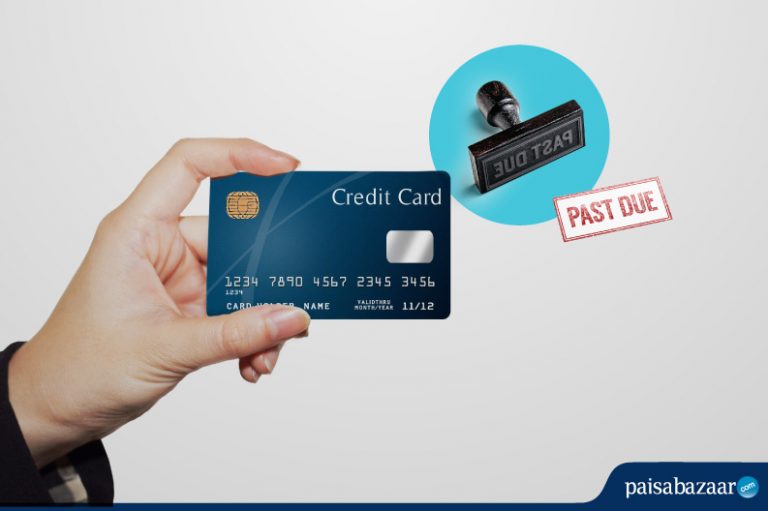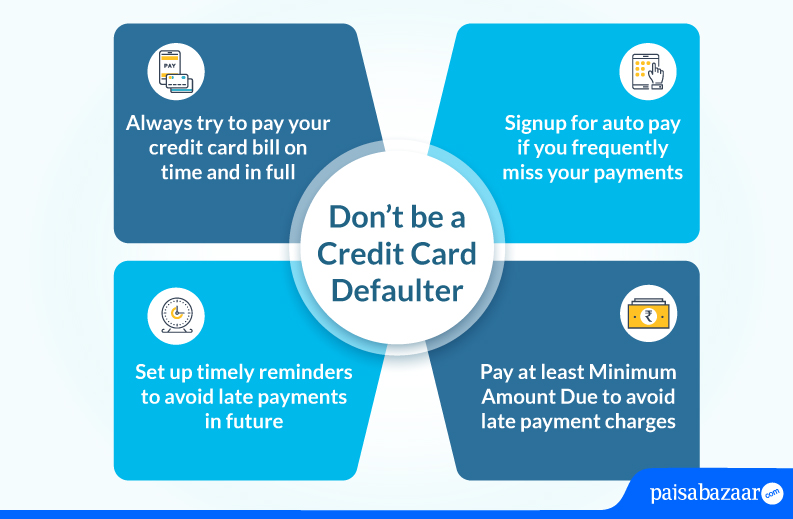
Missing credit card payments repeatedly could mark you as a credit card defaulter and can impact your financial withstanding. Defaulting on your credit card payments could be either due to circumstances beyond the control or unintentionally missed payments.
Loss of a job, medical crisis, or business failure are some of the reasons when, even a seemingly manageable debt such as credit cards, goes out of control. In fact, credit card debts are usually the first to get out of hand in such situations due to hefty finance charges, late payment charges, and other penalties. Alternatively, forgotten due dates or cash flow issues may lead to unintentionally missed credit card payments. But what happens when this continues for months? Here we will talk about what counts as credit card default and the circumstances you are likely to face when you default on your cards.

35 Comments
Hi I had an outstanding on my credit card since 2006 and I paid the same in full to the bank in August 2020 and obtained a no dues letter,and subsequent statment is also generated on zero amount.Due to this my credit score is low. Please advise when can I be able to apply for new home loan or credit card so that it should not be rejected, and will this impact negatively on my credit profile forever
Hello Danish
Your Credit Score is low because you did not pay the full due amount for about 14 years. Now that you have cleared the full outstanding amount it will take several months to improve. As this is a slow and gradual process. In the meantime, we suggest that you do not use over 30% of your credit limit, do not apply for a new credit card or loan and continue making full bill payments. Furthermore, we suggest that you wait until your credit score reaches at least 750 before you apply for a new loan or credit card. You may get a bigger loan amount and at a low-interest rate if you wait till your score crosses 800.
Within how many days we should pay the amount after Getting due amount if not paid in time what’ is the extra charges
Hello MD Asfan
You must pay the full due amount by the due date, which is mentioned on the credit card statement.
If you do not pay the full amount then you will have to bear the credit card interest rate which is about 40% for most cards. The interest will be calculated on a day to day basis from the date of purchase and till the amount is paid off. For example, if you made a purchase on 20 August and the due date is 31 August. Then the interest will be calculated on that particular purchase from 20 August and not 31 August.
Note, if you fail to pay even the Minimum Amount Due then you will incur late fee charges (Rs. 100 to 1,000 depending upon the outstanding amount) and risk getting your card blocked.
Hi, i have few pl and outstanding amount on credit cards. My income is not sufficient to pay all. What to do now? I have tried to contact customer care of banks for restructuring of loan. But unable to contact them. RBI has given permission to bank for restructuring of loan. Will they do it by own. How do i approach them?
Hi Ashwin,
One of my credit card is having outstanding for more than 180 days and the Amount is also hefty due to lockdown and COVID 19 effects on my earning.
How can I ask the bank to waive off the charges and paid my dues in such a way that I don’t feel burdened
Hello Rajiv,
It is highly unlikely for a bank to waive off/reduce finance charges on the card. However, you can call the bank and get the total due amount converted into EMIs for a longer period. This way, you will have to make small payments without incurring late payment fee or finance charges as long as you pay the EMIs on time.
You can also apply for a personal loan, if eligible to pay off the card bills
Hi Ashwin, Just a quick question. Will banks issue secured credit cards to credit card defaulters or there is a check on Cibil score for that as well.
Hello Ria
Secured credit card issuers do not check CIBIL Score of applicants. To get a secured credit card you just need to open a Term/Fixed Deposit account with the bank.